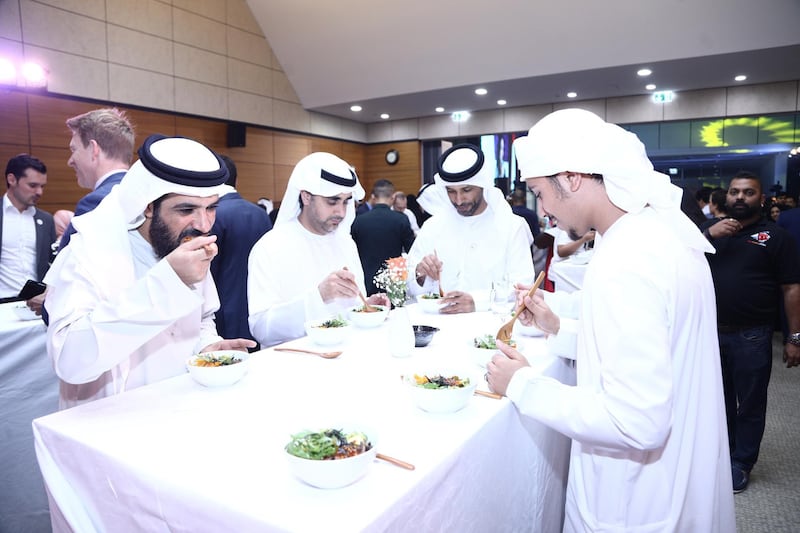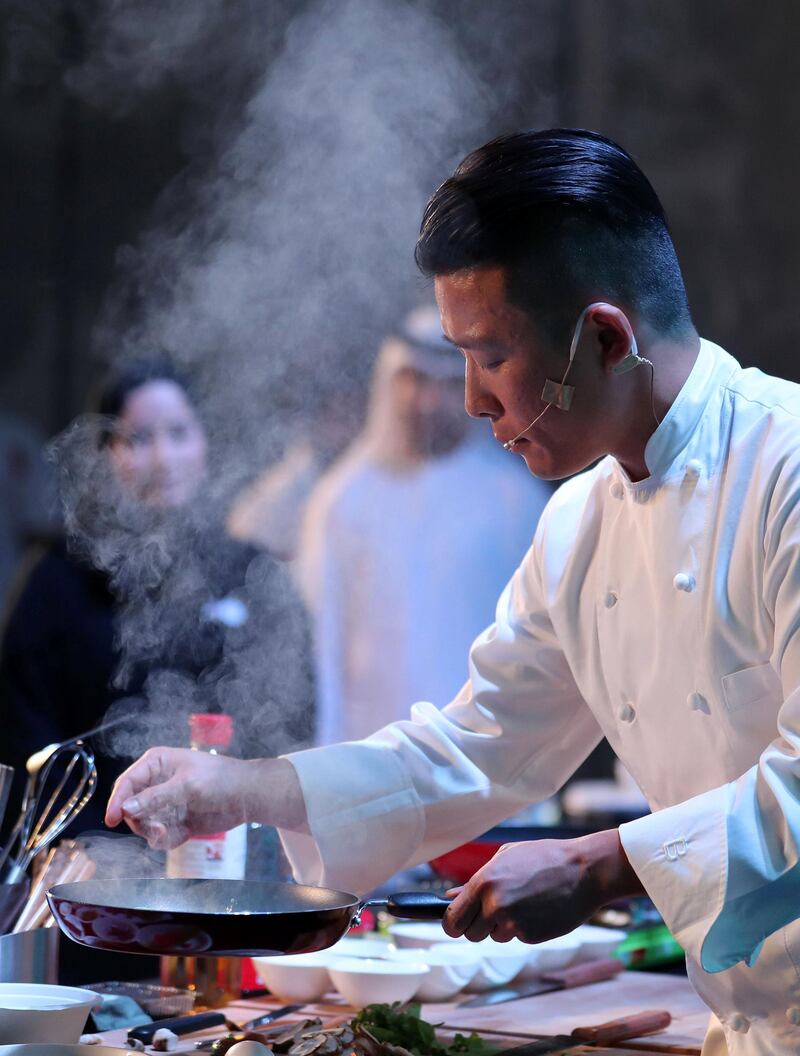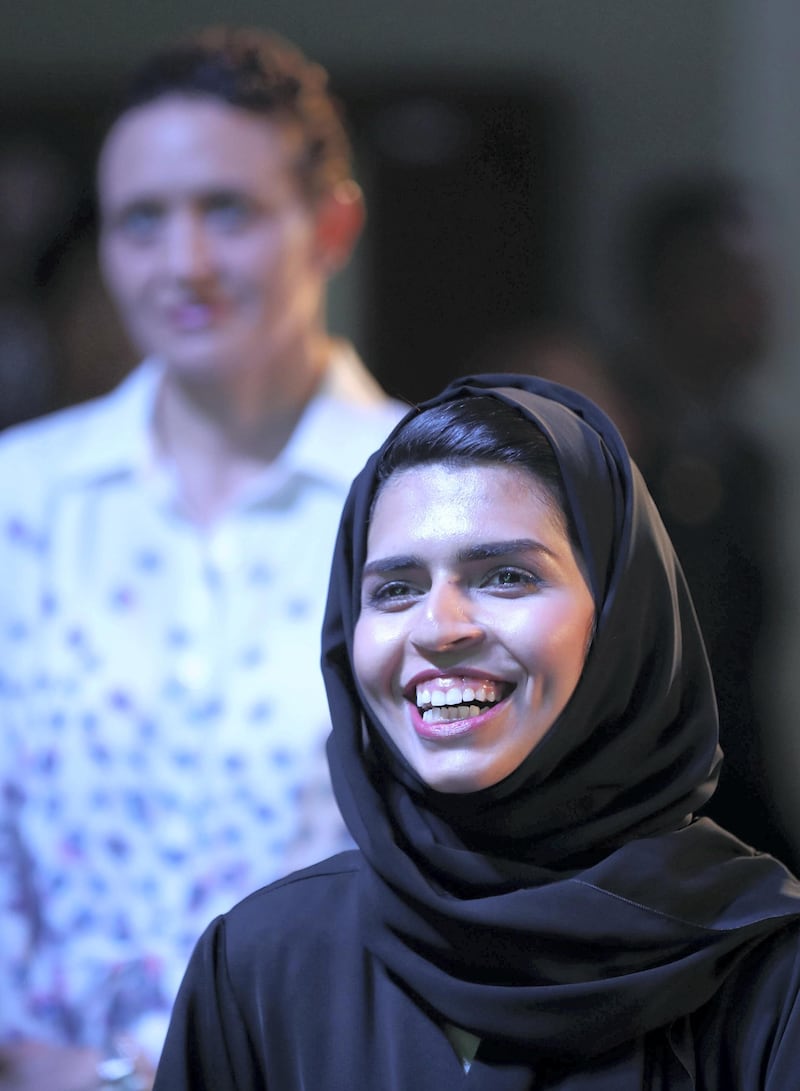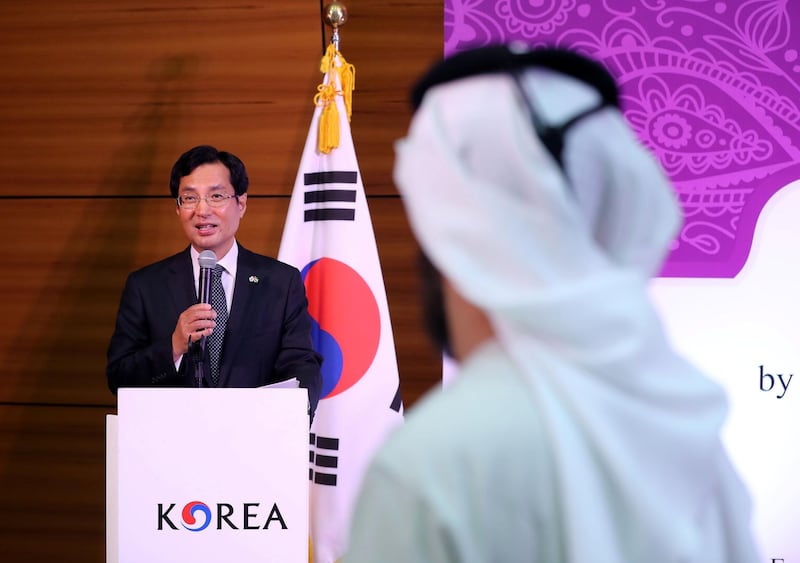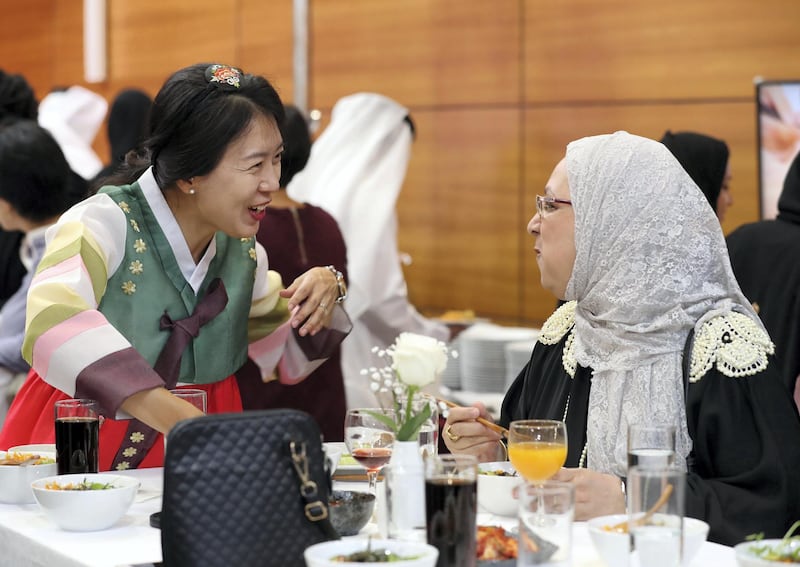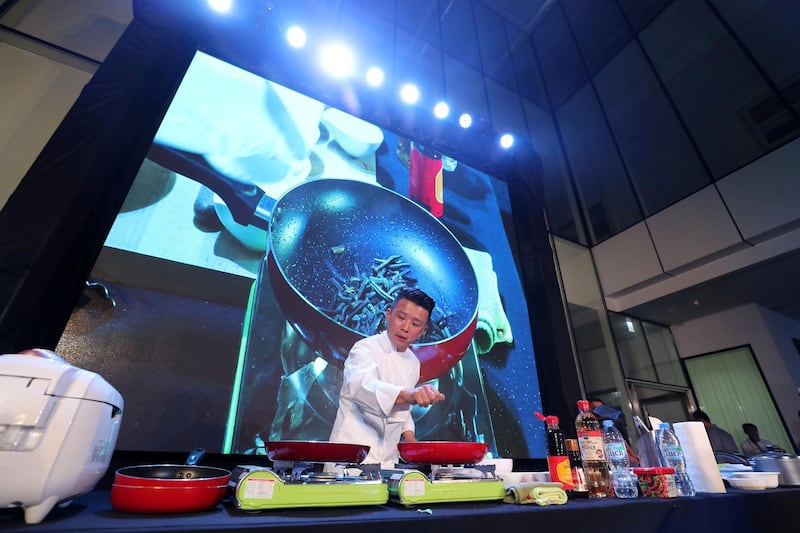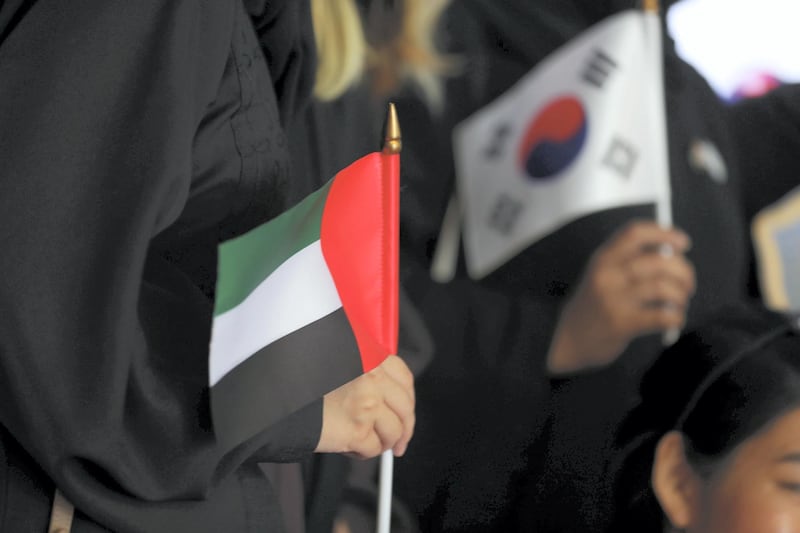During the final minutes before sunset, dozens of men and women were busy cutting vegetables and spreading olive oil on their lamb chops at the Korean embassy in Abu Dhabi.
Around 150 UAE nationals, diplomats and government officials gathered to prepare the Korean dish bibimbap, made from mixed vegetables, meat and rice, for iftar.
Ahmad Al Hajaj and his daughter Maitha added eggs to the perfectly designed Korean meat and vegetable dish just in time for Maghrib prayers, which mark the end of fasting time.
“This is the first time I have cooked a Korean dish,” said the 11-year-old. “I usually bake cakes, but this is something new and I think I’ll be able to do it again at home.”
Mr Al Hajaj, 36, said he heard about the event from his peer, a Korean instructor at Khalifa University. “I saw this as a chance to bring Maitha with me, since she loves cooking.”
The significance of the gathering, hosted by the Korean embassy on Wednesday, extends beyond sizzling pots – it symbolises a bridge of friendship and tolerance between the two cultures.
Initiatives like this over the past three years have helped increase the number of UAE tourists to Korea. Park Kang-ho, the Korean ambassador to the UAE, said between 2015 and 2016 around 10,000 tourists visited Korea from the UAE, and an additional 3,500 Emiratis visited for medical treatment. But last year, that number grew to 20,000.
The embassy has been celebrating Ramadan since 2016. "I believe that today this kind of iftar will contribute to a cultural exchange and an understanding between our countries and religions,” said Mr Park.
The two countries have strengthened their ties in recent years in fields including energy, defence, healthcare and culture.
Farinaz Modir beamed as she mixed sesame oil into a gingery Korean sauce.
“I learned to make the sauce for [bibimbap] and I’m very excited, this is the first time I am trying to make this dish and I’ve had it many times at Korean restaurants,” said the 37-year-old teacher.
“I went to Korea for vacation twice and tried Korean food. I love Korea ... I think I put too much pepper! Oh, I have to add sugar!
"Now I think this is right.”
The event’s main chef, Jihun Maxime Kim, said he redesigned this version of bibimbap to include Emirati elements.
“I used seven vegetables to represent seven emirates because I wanted to present the relationship between Korea and the UAE.
“It usually comes with beef, and when I went to RAK the other day they served me a dish with lamb and it is the traditional meat for Emiratis. So instead of beef we used lamb chops ... It also comes with seven Arabian mixed spices.”
_______________
Read more:
What it takes to put together a successful large-scale iftar
What is it about Vimto that makes it such a Ramadan staple?
_______________
At another cooking station, chef Gwang Bum Gu instructed a group of women as they put their cooking gloves on to spread olive oil over a veal fillet.
“After the spices, you add the olive oil, otherwise all the juices will come out,” he explained.
Mariam Al Shehhi, 31, enthusiastically cutting a courgette into thin slices, said: “I love [bibimbap] because it is easy to make and you can do it with any ingredients at home. I usually do it without meat, but you can also do it with chicken.
“Today I learned that the vegetables are cooked and not just steamed.”
Her passion for all things Korean started more than ten years ago. “I wanted to study Korean, she said, "and I did at the Higher College of Technology. They were the first to offer it in Abu Dhabi.”
She has been a regular to the embassy’s iftars since 2016.
